|
Energy, Telephone, Utilities
When families stay warm in the winter and cool in the summer, they reduce the risk of health and safety problems (such as illness, fire, or eviction), especially for more vulnerable family members like infants and the elderly.
WIC Can Help
connect WIC families to financial assistance with utility bills.
|
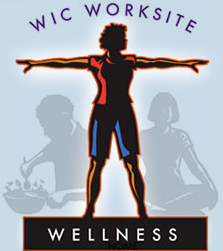
Presence Preferred Over Presents
During the holiday season, many of us feel pressure to find our loved ones the "perfect" gift. However,
recent research
suggests that small acts of kindness, not grand overtures or expensive gifts, make people feel most loved and supported.
|
Shopping at Amazon?
Support CWA without spending anything extra by using
AmazonSmile!
|
Did someone share this with you? Sign up here to get the CWA Flash directly!
|
|
 |
|

Shutdown This Friday?
Earlier this month the House and Senate
passed a Continuing Resolution
(CR) to fund the government through December 22. Along with temporary funding, the CR allows the Centers for Medicare and Medicaid Services (CMS) to fund CHIP (Children's Health Insurance Program) as a stopgap in states that are imminently running out of money for the program. CHIP funding expired two months ago and legislation is needed to fully fund the program. Lawmakers are now working towards an agreement on a third CR to go into 2018. Issues they might address include
a solution for "DREAMers,"
health care - cost sharing Reductions (CSRs) and a fix for the Pay as You Go "PAYGO" rule, which would trigger $25 billion in automatic cuts to Medicare and billions in cuts to other programs, including WIC - and more disaster relief funding. The National WIC Association has put forward
a request
for $14 million in additional funds for WIC infrastructure grants for WIC agencies impacted by presidentially declared emergencies. If lawmakers can't come to an agreement over a third CR and what it will include, the federal government
would experience a shutdown
.
|
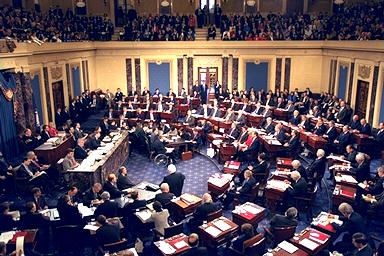
Tax Reform Bill Vote: Any Minute
Voting is expected today in the House - and soon after in the Senate - on the tax reform bill, with the plan to send the bill to the President for signing by Christmas. The bill has added, removed and changed various provisions and news outlets are offering short notes on what is now included. The upshot is that corporate rates will be reduced significantly and permanently, while individual tax cuts will be short-lived and not provide the support that middle class voters expect. Additional burden will be felt when programs that provide social services and health care are tapped to cut the resulting enormous federal deficit. While the bill has been framed as a Christmas present, it looks like coal to many Americans, who won't find a reason to celebrate the vote. ACTION:Check here for a
short video
on the current version.
|

SNAP "Flexibility" Coming
The USDA is preparing to give states "new flexibility" in administering the Supplemental Nutrition Assistance Program (SNAP). In a
letter
to SNAP directors and
press release
, a USDA administrator promised increased federal cooperation with states to reduce fraud, promote employment (
though many SNAP recipients are already employed
), and improve customer service for food stamp recipients. The letter is likely a prelude to changes Republican leaders in Congress and the White House will consider next year that remove people from the nation's assistance programs. President Trump has said he wants to
tighten food stamps' eligibility rules
and wants states to start matching federal SNAP dollars. He has also called for shrinking federal grants to states for the Temporary Assistance for Needy Families program (TANF, better known as cash assistance) and
signaled intent
to allow work requirements for Medicaid. Currently, the federal government sends about $90 million a year to states for SNAP employment and training programs, which critics say is not enough to meet the need. States can unlock additional federal matching dollars if they invest more of their own money, but most states don't spend enough to take advantage of the option.
|

Protect the Prevention & Public Health Fund
The National Association of City & County Health Officials has launched an
easy action tool
for individuals to urge their members of Congress to protect the Prevention and Public Health Fund (PPHF) in the ongoing tax reform debate. If the Republicans pass the tax plan, and Congress does not enact offsetting budgetary savings or provide some other remedy, enactment of the tax bill will
trigger automatic "PAYGO" program cuts
every year for the next ten years, including cuts to the PPHF.
|
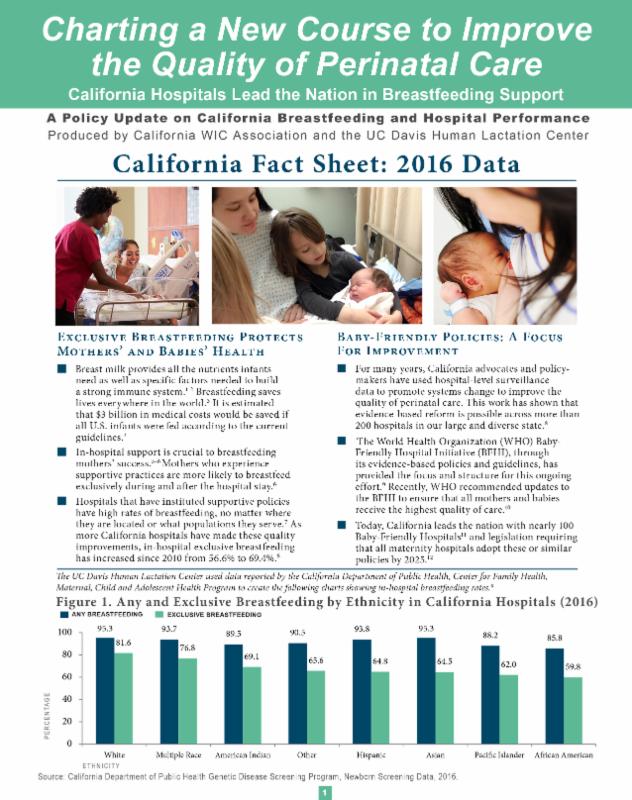
Hospital Breastfeeding Report Released!
Last week CWA, along with partners at UC Davis Human Lactation Center and California Breastfeeding Coalition, released
Charting a New Course to Improve the Quality of Perinatal Care
, our 9th annual release of California hospital breastfeeding data fact sheets. The fact sheets highlight encouraging news - California hospitals continue to steadily increase their exclusive breastfeeding rates across geographic and ethnic lines. They also point out that breastfeeding success is dependent on the support of hospital staff during those first critical 24 to 72 hours after delivery, especially for mothers facing early challenges. Support from hospital staff, evidence-based standards of care, and stronger hospital policies all play important roles in determining if a mother will continue to exclusively breastfeed her baby when the family goes home. The data bear out the positive impact when hospitals implement comprehensive policies.
ACTION:
Help us get the word out! Contact your local media, make a Facebook post, tweet! The fact sheets, media alert, press release, and social media toolkit are available
here
, plus the 2016 Report with valuable background info
. Contact
Sarah
for helpful talking points, and with your questions.
|
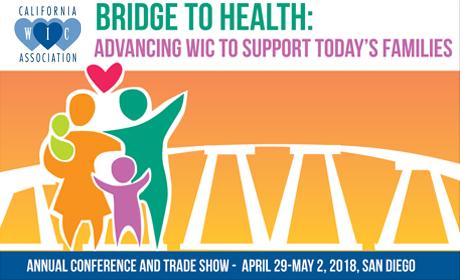
Annual Conference 2018: Registration is Open!
Plan now to attend the
2018 CWA Annual Conference
, April 29-May 2 in San Diego. Learn how WIC can be a Bridge to Health, physical and mental, at in-depth pre-conference workshops, inspiring plenary sessions, and dozens of continuing education workshops. Big shout out to local agency staff on the conference planning committee!
ACTION
:
Check our webpage for the draft agenda
, updated weekly throughout January.
Register by Feb. 23rd
to get the early bird discount. Invite your WIC, MCAH, early childhood education, and public health colleagues to join you!
|
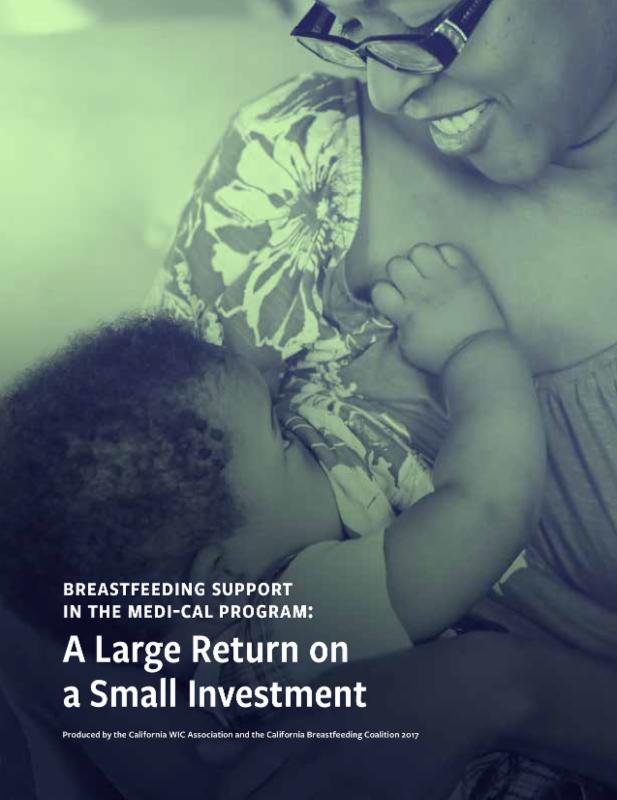
Breastfeeding Actuarial Analysis-NEW Report!
Since the passage of the ACA, women have been frustrated that the required provision of breastfeeding support has not been reliably available in both commercial and public health plans. For California WIC moms, a majority of whom have Medi-Cal health plans, they turn to WIC when their health plan does not provide counseling and support and/or effective breast pumps and supplies. Research supports the positive health outcomes of breastfeeding, which translates to saved health care costs. What has been needed is an actuarial analysis, which examines the cost to health plans providing this support. California WIC Association and California Breastfeeding Coalition are pleased to release an actuarial analysis and projected cost savings. Curious about the numbers? Read the report,
Breastfeeding Support in the Medi-Cal Program: A Large Return on a Small Investment
.
|

Toxic Stress Among Immigrant Families
Restrictions and enforcement on immigration since early 2017 have resulted in toxic stress that is affecting the daily lives of families, including children. Research involving interviews and focus groups with families, undocumented and lawfully present, from 15 countries, and also pediatricians serving immigrant families, describes impacts on health, daily life, and well-being. Latino and Muslim families are particularly stressed. Parents shared that their children are experiencing bullying, headaches, stomach aches and trouble sleeping. Families describe fear of leaving their home and often reduce their activities. The Kaiser Family Foundation report, developed with support from the Blue Shield of California Foundation was released in DC last week, including a recorded briefing.
|

Higher Blood Sugar in Early Pregnancy Raises Baby's Heart Defect Risk
Women with high glucose readings early in pregnancy are at increased risk of having a baby with heart defects, even if they do not have full-blown diabetes,
a new study found
. Diabetes during pregnancy is a known risk factor for heart problems in babies. Researchers studied data on 19,107 mothers, members of two large health care systems, of whom 811 gave birth to babies with congenital heart disease. The data included blood glucose measurements done between four weeks before conception and the 14th week of gestation. The study found that for each 10 milligrams per deciliter increase in plasma glucose, there was an 8 percent increase in the risk for giving birth to a baby with heart defects, even after adjusting for maternal age, pre-pregnancy body mass index, and the presence of pre-existing maternal diabetes. Researchers recommend exercising during early pregnancy to improve insulin sensitivity, and maintaining a healthy diet.
|

Holding Babies - Or Not - Can Change Their Genes
The amount of close and comforting contact between infants and their caregivers can affect children
at the molecular level
, an effect detectable four years later, according to new research from the University of British Columbia and BC Children's Hospital Research Institute. The
study showed that
children who had been more distressed as infants and had received less physical contact had a molecular profile in their cells that was underdeveloped for their age -- pointing to the possibility that they were lagging biologically. This is the first study to show in humans that the simple act of touching, early in life, has deeply-rooted and potentially lifelong consequences on genetic expression.
|

Watch Out for Arsenic!
High levels of naturally occurring arsenic in the food supply, particularly in infant foods and cereals, is an ongoing concern. Data in a new report from Healthy Babies Healthy Futures, an alliance working toward a toxic-free culture for children, indicates that levels in infant rice cereal have dropped, but are still high compared to other grains, and in some cases exceed FDA recommendations. In 2016 the FDA released a report on arsenic in food products and a proposal to limit arsenic in infant rice cereal, but no standards have been set. The FDA and the AAP provide guidelines on how to limit exposure to arsenic for infants, including breastfeeding, offering a variety of foods, limiting fruit juices, and avoiding rice syrup and rice milk.
|
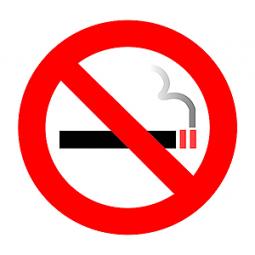
Smoking Cessation Resources
The
California Smokers' Helpline
is pleased to make three free fact sheets -
Quitting E-Cigarettes
,
E-Liquid and Children
, and
Secondhand E-Cigarette Aerosol and Children
-
available
for downloading and sharing with your patients and clients about e-cigarettes, e-liquid, and e-cigarette aerosol. The last two fact sheets are particularly useful in talking with smokers who are pregnant or have young children at home. All materials are only available in English at this time. As you prepare for the New Year and the increased number of smokers wanting to quit, you can also order a variety of printed Helpline promotional materials free of charge and shipping from the following websites:
California Smokers' Helpline Online Catalog:
www.nobutts-catalog.org
,
Asian Smokers' Quitline Online Catalog:
https://asq-shop.org
, and Tobacco Education Clearinghouse Online Catalog:
www.tecc.org
.
Please feel free to
contact Kristin Harms
if you have any questions about any of the materials or resources available from the California Smokers' Helpline.
|
Initative to Reduce School-Readiness Disparities
|
|
|